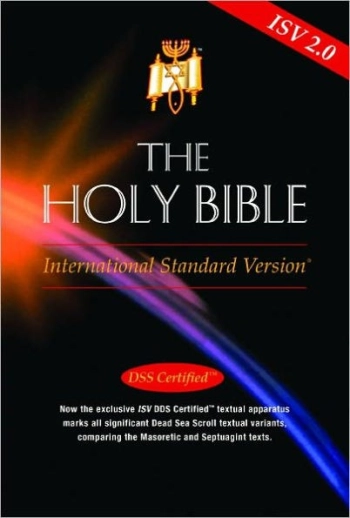1599 Geneva Bible (GNV)
The Geneva Bible: A Cornerstone of English Protestantism A Testament to Reform The 1599 Geneva Bible... Read More
The International Standard Version (ISV) is a contemporary English translation of the Bible that seeks to balance accuracy and readability. It was completed and published electronically in 2011, and its unique approach to textual criticism and translation has garnered attention from both scholars and general readers.
One of the most distinctive features of the ISV is its extensive use of the Dead Sea Scrolls in the Old Testament. The translation team incorporated textual variants and insights from these ancient manuscripts, providing a deeper understanding of the original Hebrew text. This approach sets the ISV apart from other modern translations, which typically rely primarily on the Masoretic Text.
The ISV aims for a moderate level of literalness, seeking to convey the meaning of the original text without sacrificing clarity. It avoids the overly paraphrased style of some modern translations while also striving for readability. The target reading level is approximately seventh or eighth grade, making the ISV accessible to a wide audience.

The ISV has gained a following among those who appreciate its commitment to textual accuracy and its use of the Dead Sea Scrolls. It has been praised for its clarity and readability while maintaining a high level of faithfulness to the original text.
However, the ISV is not as widely known or used as some other major translations. Its focus on textual apparatus and its moderate level of literalness may appeal more to scholars and serious Bible students than to casual readers.
The International Standard Version offers a unique perspective on the Bible through its extensive use of the Dead Sea Scrolls. Its commitment to accuracy and readability makes it a valuable resource for those seeking a deeper understanding of Scripture. While it may not be the preferred choice for everyone, the ISV has carved out a niche for itself in the world of Bible translations.